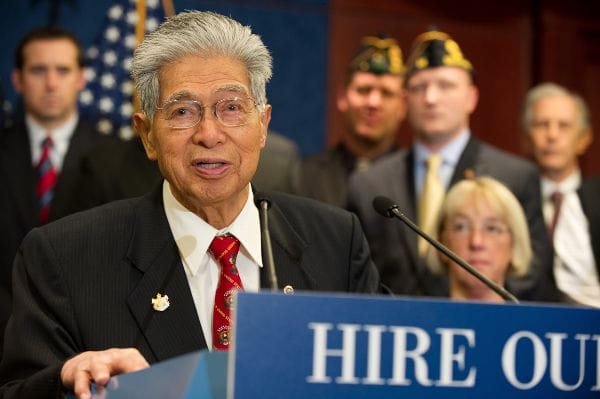Hatch Act Reform Passes Unanimously in the Senate

Photo: The Office of Senator Akaka

The Hatch Act Modernization Act of 2012 passed the Senate with unanimous consent on November 30th. The Hatch Act, passed in 1939, bars civil servants from running for partisan elective office and from engaging in biased, partisan-promoting activities. The Hatch Act reform abridges the original legislation. If signed into law, the update would allow federal employees to run for partisan elective office, create other applicable punishments aside from automatic removal from a position, and extends exemptions to the act currently enjoyed by state and local government employees, to those in the District of Columbia.
Proponents like S.2170’s sponsor Senator Daniel Akaka (D-Hawaii) contend the corrective legislation will give federal employees greater opportunity and level the political playing field. In a press release announcing the bill's success, Sen. Akaka said:
"I am pleased the Senate approved this important legislation, which will allow more Americans the right to run for public office and serve their communities, and treat federal employees and employees of the District of Columbia more fairly. I look forward to working with my colleagues in the House to pass the bill."
Senator Mke Lee (R-Utah) pointed out how the original intention of the act was not being upheld,
"The law was meant to prevent federal employees from engaging in partisan politics. Unfortunately, it has been used to prevent state and local employees whose organizations may receive some federal funding from running for elected office.”
The Hatch Act has gotten numerous federal employees in hot water. Just recently, US Attorney Laura Duffy and Obama’s Health and Human Services Secretary Kathleen Sebelius faced charges of ethics violations under provisions in the Hatch Act. Though the Hatch Act Modernization Act of 2012 would likely not affect those two cases in particular, it demonstrates the frequency with which federal employees are scrutinized by it.
So frequently in fact, the Office of Special Council receives about 2,000 inquiries annually. The murkiness associated with what exactly constitutes political activity prompted the government to create a website to instruct federal employees as to the ins and outs of the Hatch Act itself. Supporters of the reform highlight the original legislation's cumbersomeness, as it often prevents qualified candidates from running for office or severely reprimands employees that floundered in the broad definition of political activity.
To become law, the bill still needs to pass in the House of Representatives.


